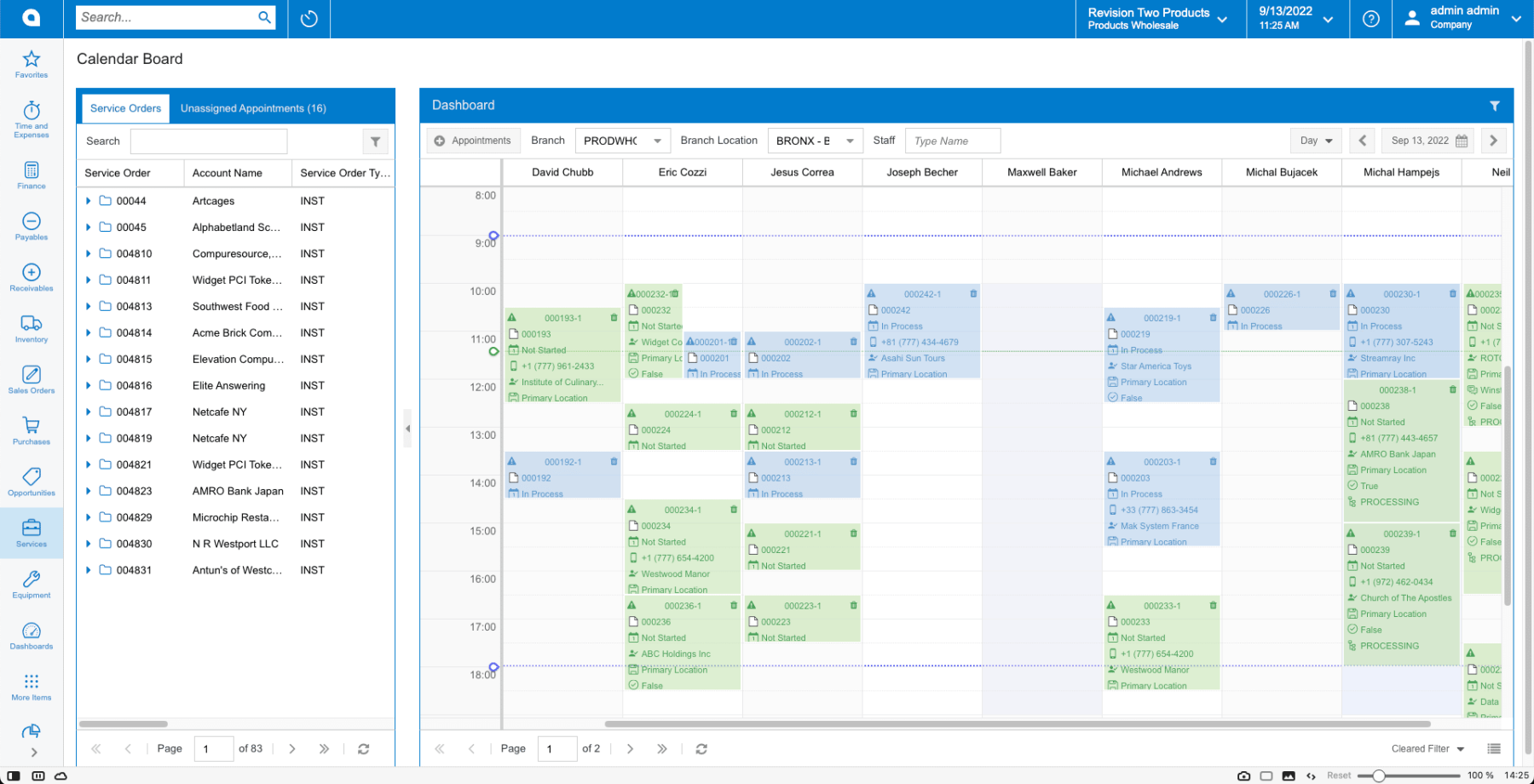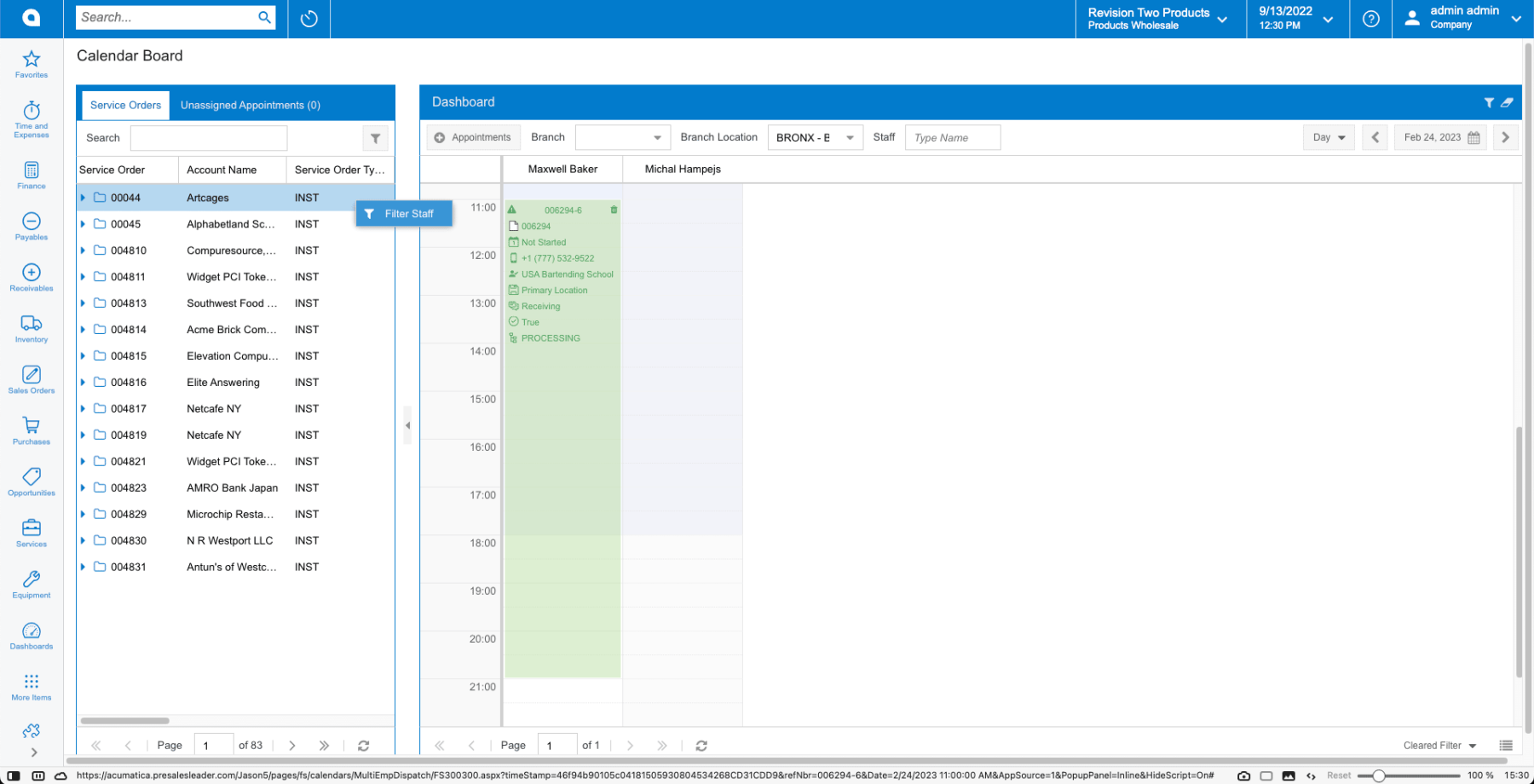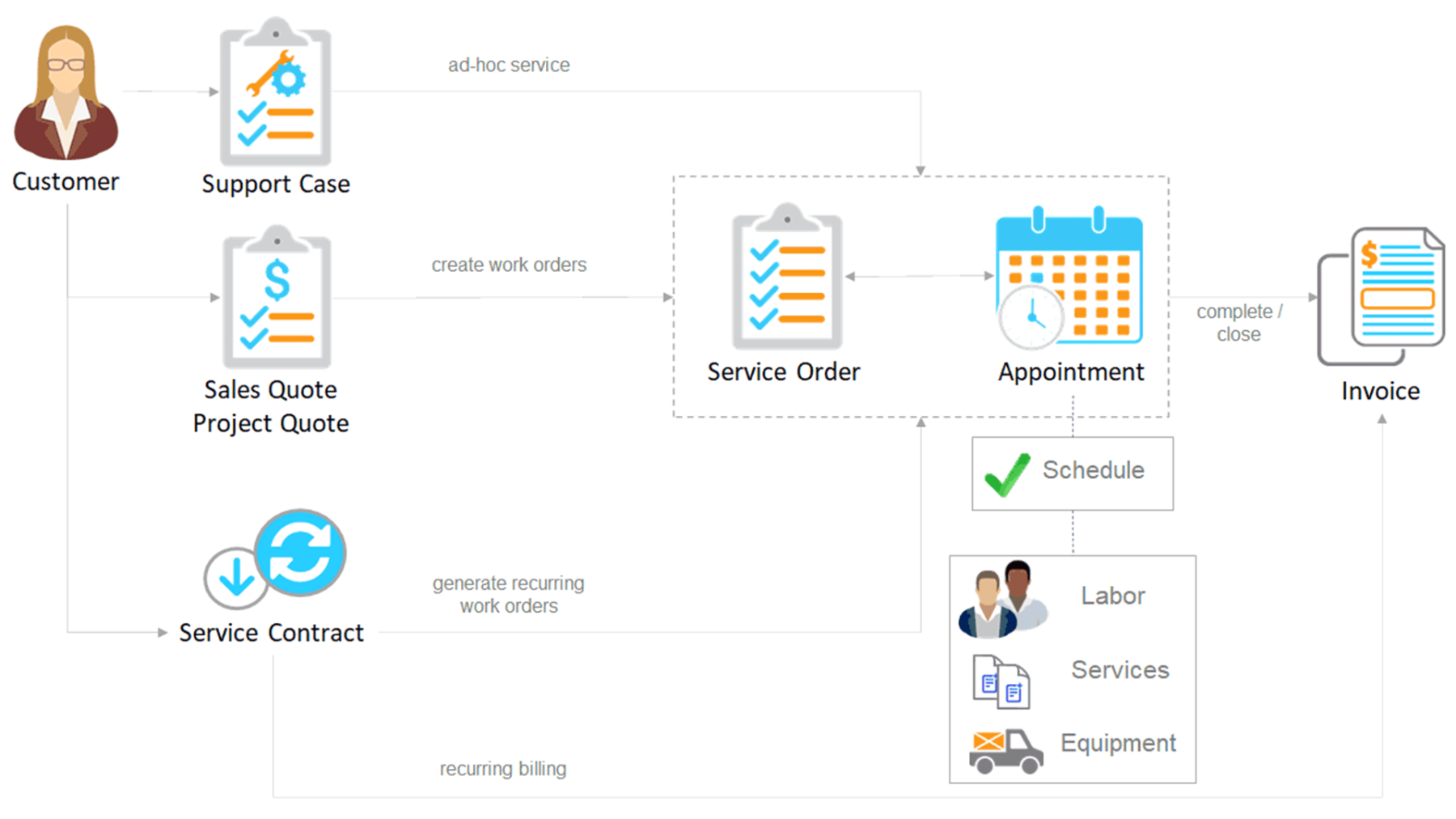Field service businesses require unique functionality to keep the home office in sync with busy technicians who are on the go.
If your current systems are not conducive to growth or are a roadblock to providing the best service to your customers, it’s probably time to evaluate options and implement a system that will address your pain points.
In this blog, we will provide the key considerations for Service Managers seeking to streamline their operations in a modern ERP platform. If you are a CEO, CFO, CRO, Production Manager, Warehouse Manager, or stakeholder in purchasing and operations, click here to see additional relevant content.
Quick access to media resources
Integration
A messy technology stack isn’t good for anyone, but we know that it is an unfortunate reality for a lot of service companies. Lack of integration leads to error-prone duplicate data entry, risking that customers’ needs will fall through the cracks. Employees tend to get frustrated when they are asked to learn and use multiple software programs as well.
We highly recommend considering systems that are fully integrated and offer the following functionality:
- CRM (Including quoting and support case management)
- Sales Orders & Projects
- Purchasing & Replenishment Suggestions
- Inventory & Warehouse Management
- Service Orders & Appointments
- Equipment & Warranty Management
- Scheduling
- Financials (AP, AR, GL, fixed assets, recurring revenue)
- Automated processes and notifications
Scheduling
With a visual scheduling board that offers drag-and-drop functionality, dispatchers can manage their technician schedules and ensure all customers are served in a timely manner. In a system that provides a single source of truth, your service calendar will provide a consistent daily plan for your technicians and schedulers with live links to materials required, linked sales orders, and other appointment details.

Make sure that your new system will allow you to track technician skills and certifications so your dispatchers can filter down to the relevant technicians when scheduling jobs that require a unique skill set. This will ensure that you always send the right technician to the right job!

Some systems also provide automation capabilities for route optimization, supporting your ability to create the most efficient schedule possible. Click here to learn more!
Workflow
If your company performs installation and maintenance, chances are your jobs are initiated in a few different ways. You might have sales reps that quote new business for installations, which then are transitioned to the service department. Your customers also likely email or call your support team when something breaks down to request an appointment. We know that a lot of companies also offer recurring service contracts, which makes sense because they can provide a significant source of revenue.
With each new system you explore, you should consider if the UI will provide the workflow that is specific to your business. For instance, can you manage multiple service contract types with flexible schedules and custom pricing and billing options? Additionally, can you automate billing cycles and provide customers secure access to their invoices and statements?

Mobile Capabilities
Our team at Opus Global Data Solutions works with many field service companies, so we’ve had the chance to talk with technicians who work in a variety of industries. One of the consistent “must-have” items we hear from them is mobile functionality. This is why we always recommend systems that provide technicians (and back-office personnel) mobile functionality for smartphones and tablets that is fully integrated, rather than a disconnected point solution. This is crucial for providing consistency between back office and field service technicians in an industry where appointment details and schedules can change quickly.
Look out for the following features:
- Mobile push notifications for appointments
- Ease of adding pictures/talk-to-text for capturing information quickly in the field
- Mobile dashboards for a day/week at a glance view
- Connection to native GPS functionality
- Appointment records with all relevant details (items, labor, and materials required)
- Customer signature capture
Reporting
The new system that you select should provide robust data that provide you with out-of-the-box reports necessary to evaluate staff, replenish inventory, set pricing, and ensure you are profitable. Alongside interactive financial statements, detailed profitability analysis, and dashboards, any system you select should offer rules-based automation that will help you serve customers faster and drive new business. Some examples might include:
- Text or email reminders sent to customers when a suggested service interval approaches.
- Dashboard alerts notify sales representatives of soon-to-expire warranties.
- A report aggregates common service requests or items requiring frequent service.
- An approval map is triggered when a service order includes a discount above a specific threshold.
- Dashboards and notifications alert the service team of expiring contracts.
Closing:
We know that every service management business is different. If you would like us to work with you to develop customized solutions that address your key pain points, please schedule a call with us.
